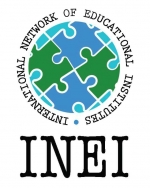Knowledge mobilisation
Knowledge mobilisation is the translation of knowledge into service for the common good. The use of new knowledge and its uptake in education policy and practice can have a huge impact on the quality of teaching and learning in schools, and we also know from research that a high-quality education can have many positive effects on children, families, communities and societies. Therefore, the knowledge-based economy calls for outward-oriented universities, an effective system of local, national and international institutions, and infrastructure that supports knowledge creation and mobilisation. Read more in the magazine!
In the new issue of Education Alliance Magazine you can read about the study.
Education Alliance Magazine, 06 (pdf)
The road to productive partnerships
The raison d’être of IALEI is not only to provide leadership for educational development around the globe and raise the public profile of education, but also to make recommendations to policy makers regarding critical issues that impact education policy and practice. For the same reason knowledge mobilisation – that is the translation of knowledge into service for the common
good – is important to IALEI, as it is to educational institutions around the world. Download the article.
Why is knowledge mobilisation a burning issue?
Education Alliance Magazine has asked leading international researchers why knowledge mobilisation in education is crucial today. See the answers here.
How do we mobilise knowledge in education?
How do we ensure that education research and knowledge make it to practice so that they can raise the educational level in the classroom? That was a key question when researchers, politicians and practitioners met to discuss ‘Knowledge Mobilisation in Education Research’. Read more here.
The current state of knowledge mobilisation in education
There is no doubt that education research contributes to the development of the knowledge society, but how exactly? A new study from IALEI sets the focus on what universities can do to make education research more influential and how to overcome the current challenges. This article by Professor Ben Levin and Ph.D. candidate Jie Qi synthesises some of the important findings of the study. Download.
What is knowledge mobilisation?
What comes into your mind when you hear the term ‘knowledge mobilisation’? Download some of the words related to the term.
What support does knowledge mobilisation require from the universities?
Education Alliance Magazine has asked the IALEI research team to answer that question. Download.
Is the move outside the ivory tower too successful?
The move towards relevance and practice orientation may go too far. Read the interview with Professor and Head of the OECD’s Centre for Educational Research and Innovation (CERI ), Dirk Van Damme. Download.
The user and the university
Inside the walls of the universities the users are coming into play in a way we have never seen before. Education Alliance Magazine has asked the leading researchers why knowledge mobilisation is about engagement. Download.
Knowledge mobilisation is a human right
Read the interview with Peter Levesque, President and CEO, Knowledge Mobilization Works, Ottowa. Download.
The culture is becoming more ready now
Read the interview with Doris McWhorter, Interim Director, Education Research and Evaluation Strategy Branch, Ontario Ministry of Education. Download.
How can knowledge mobilisation improve childrens’ achievements in school?
How can knowledge mobilisation improve childrens’ achievements in school? And, what exactly can a researcher do to facilitate relevant application of the research? Education Alliance Magazine has posed these questions to the IALEI research team. Download.
The generous university
“The motto is that good and useful theory is the most practical option. Obviously, though, there is a difference between theory and fitting use thereof.” Read the article by Claus Holm, Executive Director of IALEI.
